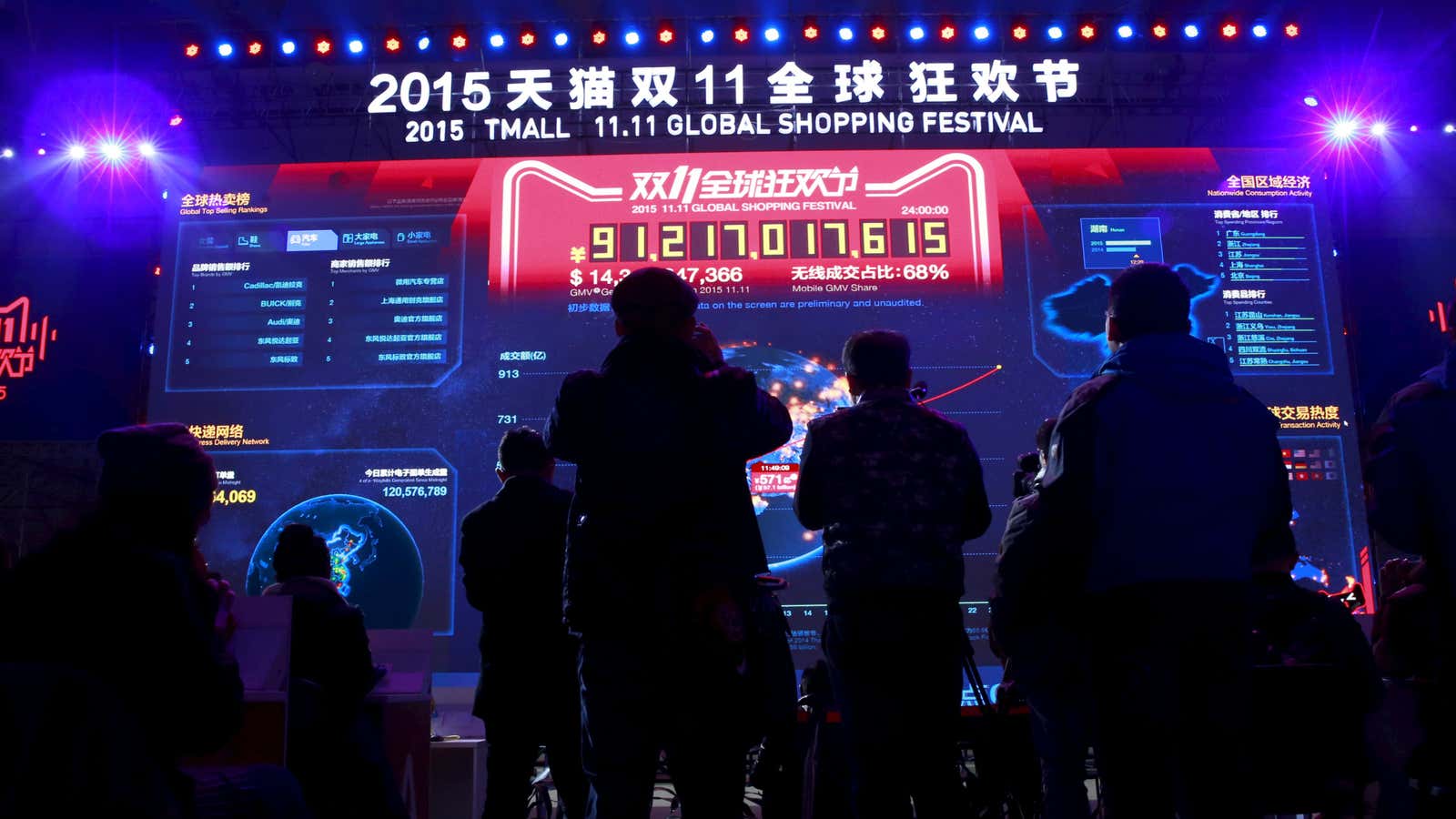China’s online shopping holiday “Singles’ Day” broke all previous records when it wrapped up at midnight last night (Nov. 11) in Beijing—Chinese shoppers bought $14.3 billion of merchandise through e-commerce giant Alibaba alone, and that figure doesn’t include billions more on competing websites.
That $14.3 billion figure blew through expectations, and beat last year’s number by 60%:
It dwarfs everything from some multinational companies’ annual revenues to the GDP of some smaller countries:
It’s true, comparing sales on Alibaba’s T-mall and Taobao sites during Singles’ Day to revenues of other companies isn’t apple to apples—Alibaba takes a commission from goods sold during Singles’ Day promotions, but its core revenue stream comes from vendor services like advertisements and analytics. This explains why the company’s revenues are so much lower than Amazon’s. And some analysts have raised questions about the veracity of Alibaba’s Singles’ Day totals.
But the Singles’ Day total is important nonetheless, because it shows the raw power of China’s consumers, who purchased over $450 billion in merchandise online in all of 2014, a figure expected to more than double to over $1 trillion by 2018.
Chinese consumers’ buying power, and its online growth, could drastically impact supplies of consumer goods around the world in the very near future. It already is in Australia, as some angry parents discovered when demand from Singles’ Day sales in China wiped out supplies of their favorite baby formula.
This global change in supplies of consumer goods could happen very fast. After all, in just six years, Alibaba transformed Singles’ Day from a small university event to this year’s $14.3 billion bonanza.
